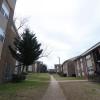Mayor Girtz Proposes Property Tax Cut, but Many Homeowners Will Still Pay More
City Dope
Ordinarily, few people would pay any attention to this, but a confusing legally mandated notice on local property taxes has some residents up in arms in this time of economic uncertainty. The legal notice states: “The Athens-Clarke County Mayor and Commission have tentatively adopted a millage rate which will require an increase in property taxes by 4.62 percent… This tentative increase will result in a millage rate of 13.825 mills, an increase of 0.610 mills. Without this tentative tax increase, the millage rate will be no more than 13.215 mills.”
This is misleading on a couple of levels. The reference to an increase in property taxes by 4.62% is not a result of raising the millage rate. It’s the increase in the overall county tax digest. That also means not everyone’s taxes will rise by 4.62%. For some, it might be 10%; for others, it might be zero.
For another thing, Mayor Kelly Girtz is actually proposing lowering the millage rate from 13.95 mills to 13.825. The figure of 13.215 is what’s known as the “rollback rate”—the idea being to pressure local officials into reducing the property tax rate whenever property values rise. These notices date back to a period of hostility among state legislators toward local property taxes, not long before then-Speaker Glenn Richardson tried and failed to replace them with more taxes on goods and services.
Property taxes are based on a formula: 40% of the assessed value of a property, minus the homestead exemption ($10,000 for ACC residents who live in their home) times the millage rate (one mill is $1 per $1,000). The value of property is set by professional appraisers, not the Mayor and Commission.
The Mayor and Commission could further reduce the millage rate, of course. But doing so would require spending cuts at a time when other sources of revenue, such as alcohol taxes and business licenses, are unstable. Then the question becomes, what should they cut? The majority of the ACC budget goes toward public safety—police, courts and firefighters. Girtz’s budget actually includes $2.1 million to give public safety employees raises and train them on mental health and community engagement, as well as $350,000 to hire eight new 911 dispatchers, which will improve the timeliness of ambulance service.
People who believe their property has been assessed unfairly can appeal to the Board of Assessors, appointed by the Mayor and Commission, then to the Board of Equalization, appointed by a grand jury, and finally to a Superior Court judge.













comments